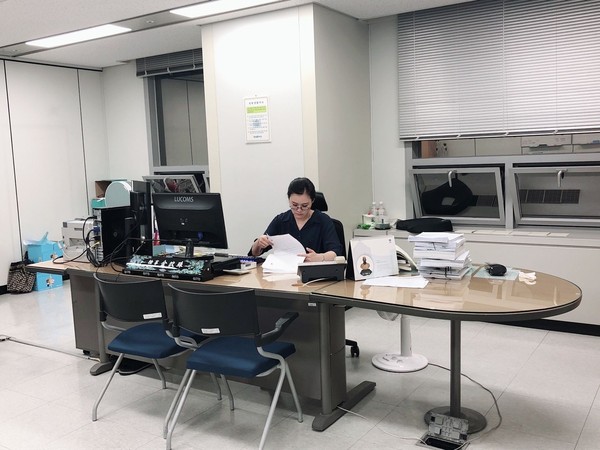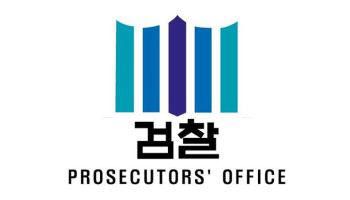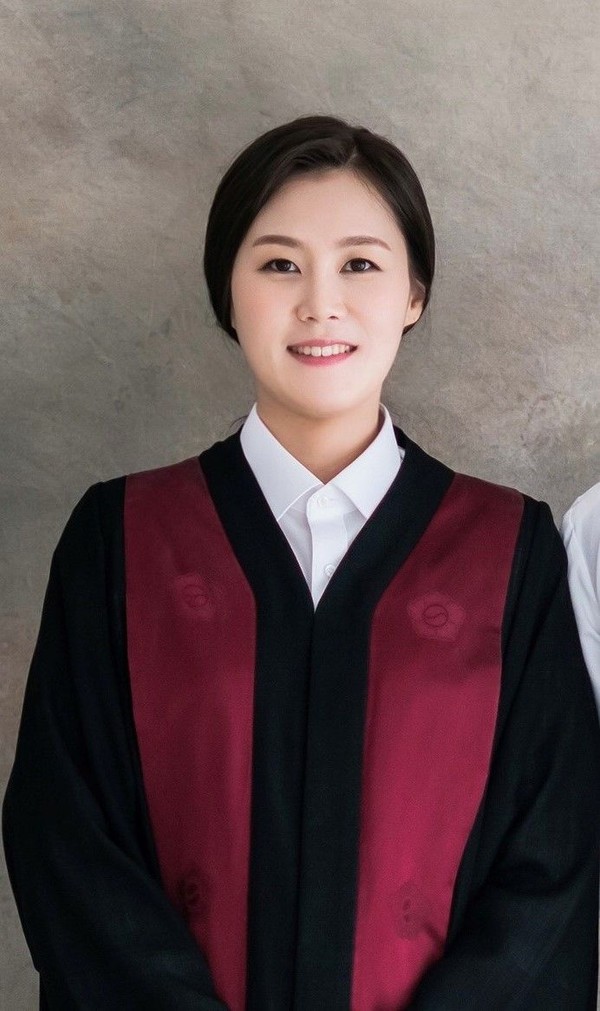
The law is one of the things that we need to operate our society smoothly. Law is the promise of the community and is essential to move toward a just society. As the law exists for people and society, legal professionals who deal with the law must consider people beyond the law preferentially. SMT interviewed a prosecutor, Kim Minjoo, who hears people's stories in advance before making judgments. She says, "What prosecutors do is ultimately directed at people". Like this, she tries to protect the essence of the law by constantly communicating with people in the process of handling cases.
Before we start the interview, would you please introduce yourself to our readers?
I'm a prosecutor named Kim Minjoo, who works in the Busan District Prosecutors' Office. I graduated from the Division of Law in SMWU and passed the 55th bar examination. And now, I have been working as a prosecutor for 5 years.
What made you decide to join the legal profession? And why did you choose to be a prosecutor among the various roles in the legal profession?
In my school days, my family was exposed to violent crime, and I first became interested in law and the legal profession after having that bad experience. While I was studying law, I realized that I wanted to study it more deeply, and I thought about becoming a legal professional specifically. Prosecutors are responsible for the overall process of law enforcement, taking charge of criminal investigations and executing punishment. I chose to be a prosecutor because I thought I could take the lead in defending justice if I became a prosecutor.
You graduated from the Division of Law. How has your major helped you to work? And can you recommend any undergraduate activities that can be helpful for entering the legal profession?
I learned the basics of law from great professors while at college, and what I learned at that time became the foundation of my prosecutorial life. Also, I have experienced working in a judicial precedent club, and I acquired the knowledge necessary for the examination by naturally hearing the cases that I have to encounter a lot in law theory and practice. It would be helpful if you do some activities that enable you to study law with your peers.
You said prosecutors are involved in the overall process of law enforcement. Then would you please explain your work and role in detail?
Most of the people who visit my office open the door with a worried look because they are involved in crime or conflict. Being a person involved in a case may be something that makes an individual's daily life a state of war. In this situation, prosecutors make decisions to prevent and resolve the conflicts people face, and the decision made by the prosecutor who is in charge of the case has a great impact on the lives of people. Also, prosecutors perform tasks such as investigations, prosecutions, and maintaining public prosecutions, and these can be considered to contribute to the public interest eventually.

There can be a lot of pressure as you are working as a representative of the public interest. Please tell us what values and attitudes you are trying to keep during your work.
As I said, the prosecutor's decision has no small amount of influence, so it carries great responsibility. Before I analyze a case, I try to understand and empathize with the people beyond it, and I constantly remind myself of the fundamental reasons why the law exists. At the same time, the prosecutor who handles the law must remain cool in the process of dealing with a case. So, I deal with cases based on empathy for people, but always try to decide them with an objective view that is not biased towards either side.
You will have surely experienced a lot of difficulties in preparing for the exam to become a prosecutor. What was the most difficult part in preparing for the exam and how did you overcome it?
I became a prosecutor after 4 years of study and 4 years of exam prep. While preparing for the examination, which was not a short process, I kept asking myself 'What if I don't pass the exam? Is this enough effort?' And the uncertainty of my future made me nervous. However, I tried to believe in myself all the time and maintained my pace by recalling the phrase, 'There is no shortcut to learning.' I think I overcame difficulties by studying steadily and putting in effort to correct my deficiencies.
Then, what is the most difficult thing of working as a prosecutor now, and what do you do to overcome it?
In the midst of arguments over whether or not to admit a crime, a prosecutor must make a single decision by digging into what is true. This decision won't satisfy everyone, and this seems to be the biggest difficulty that can be encountered while working as a prosecutor. However, I think it is a prosecutor's duty and ability to handle cases so that no one suffers unfairness by a reasonable decision that is acceptable to everyone. So I'm trying to overcome this difficulty by listening to people's stories as much as possible until I deal with the cases, carefully reviewing them, and making convincing decisions.
On the other hand, can you tell us about your happiest and most rewarding moment as a prosecutor?
I think it's very important to ensure that people aren't falsely charged in the process of handling a case and reaching its conclusion, but it's not that easy. So after I decide the direction of the case, the people involved often express their gratitude for my efforts and decisions in writing, and I feel moved then. Also, when I see people who reflect on themselves and vow not to commit crimes again despite being criminally punished by me, I feel rewarded.
You must have dealt with a number of cases and clients while working. Then when was the most memorable moment?
I haven't worked long as a prosecutor yet, but I've met so many cases and people for five years. Among them, I remember a case when I was in charge of violent cases at the Seobu Branch of Busan District Prosecutors' Office. The victim was an old woman over 70 years of age, and she was the target of violent crime by her family. She came and appealed to me in pain with tears, and it was such a terrible event that I remember being heartbroken throughout the whole review of the case. At that time, as a prosecutor, I punished the perpetrator for the crime properly, and tried to relieve the victim's pain a little by supporting her with some volunteering programs for victims. After that, she came to me and held my hand to express her gratitude. I still remember that moment vividly.

What branch of law have you been interested in recently, and what do you think about it?
I sometimes think about the need to supplement the current law. Recently, I thought it would be better if the laws related to the recovery of the proceeds of crime could be supplemented. To put it simply, if someone takes 500 million won from victims by committing a crime, what would you think if the criminal was punished but the money could not be recovered? People would probably have doubts about the actual effectiveness of the punishment and take pity on the victims who can't get their money back. In other words, the recovery of damages and illegal proceeds in criminal cases should be treated as importantly as criminal punishment. However, current laws still have limitations in ensuring full recovery of the damages. And this is the reason why I feel the need for the relevant laws to be revised to mitigate criminal revenue requirements and to function organically.
What goal do you want to achieve in the future?
Like Lady Justice, I hope to be a prosecutor who can make a fair judgment with a scale in one hand and defend justice through strict application of laws against crime with a sword in the other hand. I also aim to become an irreplaceable prosecutor in the field of expertise that I'm interested in.
Lastly, would you like to leave any final words to Sookmyungians?
I'm very honored and happy to have the opportunity to meet Sookmyungians through The Sookmyung Times. Looking back now, I think college was the most important time to experience various things. I hope you have a lot of meaningful experiences in various fields so that you don't waste your precious time. The experience will dilute anxiety about the future and will be the nourishment of the future you want. Lastly, please remember that many great senior legal workers who went through Sookmyung are making efforts to create a just society. Thank you.

Kim Minjoo
-Division of Law '07
-Passed the 55th bar examination
-Worked in Seobu Branch of Daegu District Prosecutors' Office
-Worked in Seobu Branch of Busan District Prosecutors' Office
-Working in Busan District Prosecutors' Office


